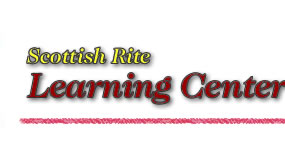


Dyslexia is a specific type of learning disability that makes
it difficult for the person to decode words, spell and to read words accurately and fluently. Dyslexic individuals have difficulty "breaking the code" of sound-letter association (alphabetic principle). They may also have difficulty learning new vocabulary, and getting their thoughts onto paper in a logical, concise manner. No two dyslexics are alke---each has his or her won set of strengths and weaknesses.
Contrary to what many think, dyslexia is not about reversing letters. Dyslexia is a neurological "glitch" and has nothing to do with a person's IQ. In fact, many dyslexics display insightful, impressive talents for "thinking outside of the box." Dyslexics never outgrow dyslexia---reading and writing remain difficult throughout their life---but with specialized tutoring by a professional trained to work with dyslexics, they can manage print more effectively. The good news is that students with dyslexia are learning to read, write, and spell in language training classes at the center. Students are taught by Licensed Dyslexia Therapist using Take Flight: A Comprehensive Intervention for Students with Dyslexia, a multisensory, structured, sequential, phonetic-based curriculum purposely designed for students with dyslexia. Students age six through young adult who satisfy the entrance requirements are eligible to enroll in the program.
|
Scottish
Rite Learning Center of South Texas, Inc. | 308 Avenue E at 4th St.
| San Antonio, Texas 78205 | Phone: (210) 222-0133 | Fax: (210) 222-0136
A 501(c)(3) Scottish Rite Masonic Charity
A 501(c)(3) Scottish Rite Masonic Charity





